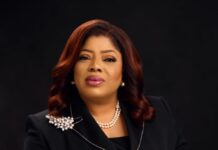By Chuks Okocha
 The quest by governors of the 36 states to push for the removal of the police from the exclusive list has suffered a setback.
The quest by governors of the 36 states to push for the removal of the police from the exclusive list has suffered a setback.
The 19 northern states governors on Friday opted to drop the demand for state police which has long been a major clamour of the Nigerian Governors’ Forum.
They have rather called for some reforms that would ensure the governors are able to exercise ample control over the commissioners of police in their states. The northern governors also insisted that the immunity clause for president, vice president, governors and deputy governors as contained in section 308 of the 1999 constitution as amended be retained.
These were part of resolutions contained in a communiqué issued by the 19 northern governors at a meeting presided over by the chairman of the Northern States Governors’ Forum and governor of Niger State, Dr. Mu’azu Babangida Aliyu. The meeting was held at the Niger State Government House, in Abuja.
According to the communiqué, “The forum was not in support of the creation of state police. It, however, resolved to prevail on the federal government to embark on police reform that will assist the states in control and management of police affairs, and further emphasis on the sound philosophy for modern policing by amending the provision of section 215.”
The group particularly wants the aspect that obligates commissioners of police to take directives from the inspector-general of police to be deleted. Section 215(2) states: “The Nigeria Police Force shall be under the command of the Inspector-General of Police and any contingents of the Nigeria Police Force stationed in a State shall, subject to the authority of the Inspector-General of Police, be under the command of the Commissioner of Police of that State.”
On the debate over the continued relevance of the immunity clause as contained in section 308, the communiqué noted: “The northern governors also resolved that the immunity clause as enshrined in Section 308(3) be maintained and the provision of the Constitution that provides for two terms of four years for President and Governors be maintained.”
While emphasizing that the rotation of political offices among geo-political zones was an essential tool to addressing political exigencies, the northern governors however insisted that the six geo-political zones should not be enshrined in the constitution. The communiqué added that the number of justices at the Supreme Court should be limited to 12 while the National Assembly could determine the number of judges at the Court of Appeal.
They also said the office of the Attorney-General of the Federation and Minister of Justice should not be separated. But they agreed that the office of Accountant-General of the Federation be split.
The governors from the 19 northern said there should be an office of Accountant General of the Government of the Federation,” which they said “would handle accounts of the federal government only.” They also called for the creation of the office of Comptroller of the Federation that would handle revenue accruing to the Federation Account.
They called for a revisit of the issue of on-shore and offshore dichotomy. They “resolved to meet with speakers of northern states’ houses of assembly and members of the National Assembly to further deliberate on the proposed amendment.”
Also, the governors said they had constituted a technical committee to study the Petroleum Industry Bill and offer them necessary advice. On the security problem in the north, the governors agreed to set up a committee on reconciliation, healing and security comprising eminent citizens from the zone to work on a continuous basis as a team towards “mitigating the alarming rate of insecurity in the north.”
The governors argued against a national minimum wage, adding that each state should be allowed to determine what it could afford to pay its workers. They, therefore, called for the amendment of the Labour and Allied Companies Laws. Concerning the role of traditional rulers, the governors disagreed with the call by them (traditional rulers) to be given any constitutional role.
On electricity, the forum said states should be allowed to generate and distribute power if they wished, whether or not such area was covered by the national grid or not.
The Northern States Governors’ Forum meeting came just days after the Senate Committee on Review of the Constitution rounded-off its retreat at Asaba, Delta State, with the revelation that state creation and fiscal federalism were the dominant amendment proposals.
President of the Senate, Senator David Mark, who formally opened the retreat said the committee had received 108 memorandums from across the country. Mark said: “The impressive response underscores the deep desire of our people to be governed in accordance with democratic norms.” He added that the National Assembly would not “foist a fait accompli on Nigerians under the guise of constitution review.”
Culled from Thisday




